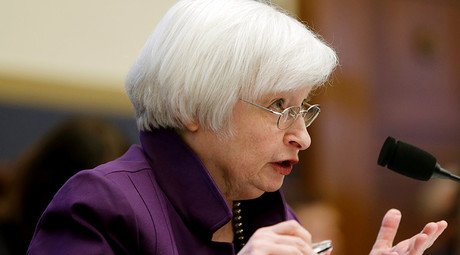Mad dash: Obama admin sets regulatory priorities for final year in office

As just more than a year before time runs out, the Obama administration has released its regulatory priority plan for fiscal year 2016. Many proposals relate to laws passed under Obama, as critics insist the new rules mean billions in excessive costs.
The Unified Regulatory Agenda and Regulatory Plan for Fall 2015 sets the stage for what is expected to be a persistent effort by the Obama administration to implement key initiatives and regulatory rules ahead of President Barack Obama's exit from the White House in January 2017. In addition, the regulatory dash may be heightened given Obama's opposition in the Republican-led Congress.
Critics of new regulations attached to Obama-led policies – such as the Affordable Care Act, otherwise known as Obamacare, and the President's Climate Action Plan – say the new regulatory proposals are part of the Obama administration's latest, greatest attempt to burden the American taxpayer.
Food fight: FDA targets illnesses that sicken 48 million Americans a year https://t.co/II6EYAsLBgpic.twitter.com/uW92SVsYKL
— RT America (@RT_America) November 14, 2015The Agenda and Plan, as released by the White House Office of Management and Budget, "are preliminary statements of regulatory and deregulatory policies and priorities under consideration," which include "'active rulemakings' that agencies could possibly conclude over the next year."
"The Plan provides a list of important regulatory actions that agencies are considering for issuance in proposed or final form during the 2016 fiscal year," wrote the Office of Information and Regulatory Affairs (OIRA) in its public announcement of the Obama administration's upcoming and ongoing regulatory priorities.
"In contrast, the Agenda is a more inclusive list, including numerous ministerial actions and routine rulemakings, as well as long-term initiatives that agencies do not plan to complete in the coming year but on which they are actively working."
The regulatory costs associated with the newly released regulatory plan will boost this year's amount of compliance costs to $92.1 billion, according to the center-right think tank American Action Forum.
"(Obama) has used the rulemaking authority to implement his policy agenda, presidents do that, but he has done it to a greater degree than anyone else,” Douglas Holtz-Eakin, president of the American Action Forum and former director of the Congressional Budget Office, told The Hill.
Supporters of the regulatory process charge that Congress is to blame for any last-minute push, as federal agencies have to "comply with a rule development process that is a labyrinth of complex and redundant legal and analytical requirements," wrote Amit Narang, regulatory policy advocate for Public Citizen. "Congress has only added to these requirements over the years without ever removing any of them or streamlining the process."
Obama administration regulations related to the Affordable Care Act, immigration policy, and the plan to combat climate change have been challenged in court. Others, such as net neutrality rules established by the Federal Communications Commission, will likely be the focus of legal wrangling as well.
“I hope the administration is aware they are running out of time,” Peg Seminario, safety and health director for the AFL-CIO labor union told The Hill. “If they want to get these final rules in place and in effect before the end of the administration and protected from political interference from Congress, they need to move forward.”
Rules within in the new regulatory plan include a "pay versus performance" provision from the US Securities and Exchange Commission that would require companies to compare top executive pay to the company's overall performance. Rules by federal agency can be viewed here.
Wall Street bonuses doubled income earned by all US minimum wage workers http://t.co/T43j811DkZpic.twitter.com/G1xOcAuW6F
— RT (@RT_com) March 17, 2015A more inclusive list of priorities, The Agenda consists of over 2,000 regulations, including the 144 "economically significant" ones expected to cost $100 million apiece or more, according to The Heritage Foundation, a conservative think tank.















